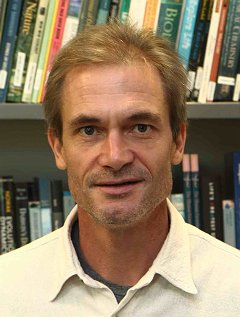Source Academy: A Web-based Environment for Learning Programming with SICPIn-PersonGlobalK12
The Source Academy is a community-built immersive online environment for learning programming. The environment is custom-made for learners and instructors who use the book Structure and Interpretation of Computer Programs, JavaScript Edition (SICP JS). An interactive version of the textbook is integrated into the system, and the programming environment of the Source Academy allows learners to focus on SICP-JS-specific sublanguages of Java-Script. The environment provides tools to support SICP’s mental models for computational processes and data, including a stepper that animates the substitution model of Chapter 1, a data visualizer that supports the box-and-pointer diagrams of Chapter 2, and a visualizer for the environment model of Chapter 3.
The system is web-based (no software installation required) and provides dynamically loadable plugins (modules) for programming with graphics, audio, image, and video processing. An extension called Source Academy @ NUS provides Learning Management System features such as the management of programming assessments and their manual and automatic grading. Source Academy @ NUS includes gamification components such as achievements, contests, levels, and a visual-novel-style game that provides a narrative to contextualize the assessments.
This 45-minute demo provides CS educators with an overview of the Source Academy, including its tools, modules, and textbook integration, and of the Source Academy @ NUS extension for course management.
The guiding motivation for Martin’s work is the scalability of experiential learning. He has led the flagship programming course CS1101S for first-year students of the School of Computing at the National University of Singapore (NUS) since 2012, founded the experiential course CS4215 Programming Language Implementation, and extensively subscribes to SoC’s project-based course CP3108 for experiential learning.
The work on CS1101S culminated in the textbook Structure and Interpretation of Computer Programs, JavaScript Edition, by Harold Abelson and Gerald J. Sussman, adapted to JavaScript by Martin Henz and Tobias Wrigstad with Julie Sussman, published by MIT Press in April 2022. Martin is the initiator of the Source Academy, an immersive online experiential environment for learning programming used in CS1101S and at the University of San Francisco. He designs and develops open-source software on GitHub, co-founded the software company Workforce Optimizer Pte Ltd with Alan Sevugan, and supervised Rahul Singhal’s PhD, which led to the formation of the education-A.I. company Cerebry.
Martin founded the multidisciplinary initiatives NUS Seafarers, a programme for maritime exploration that was active 2017-2020, FrogWorks, a prototyping studio at the iDP in the NUS Faculty of Engineering that was active 2011-2016, and The Physics of Sailing, a collaboration with NUS physics professors that was active 2011-2017.
Thu 16 MarDisplayed time zone: Eastern Time (US & Canada) change
15:00 - 15:45 | Coffee Break and Demos 2Demos / Logistics at Exhibit Hall G Chair(s): Bedour Alshaigy Uppsala University, Eric Fouh University of Pennsylvania | ||
15:00 45mDemonstration | RecursionVisualizer: Teaching Dynamic Programming With VisualizationsIn-PersonCCK12 Demos Ethan Turok Columbia University DOI | ||
15:00 45mDemonstration | Strype: Frame-based Python in the BrowserIn-PersonGlobalK12 Demos Neil Brown King's College London, Pierre Weill-Tessier King's College London, Michael Kölling King's College London DOI | ||
15:00 45mDemonstration | Source Academy: A Web-based Environment for Learning Programming with SICPIn-PersonGlobalK12 Demos Martin Henz National University of Singapore DOI | ||
15:00 45mOther | SIGCSE Coffee Break ShowHybrid Logistics | ||
15:00 45mCoffee break | Break Logistics | ||
